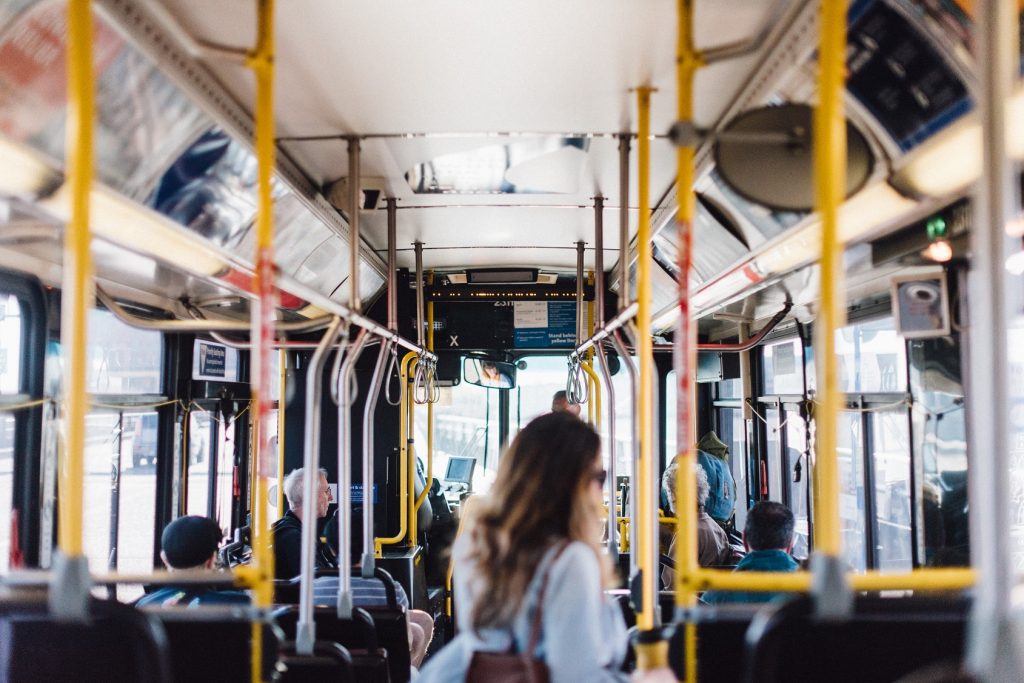TriMet Board approves Ordinance 369, making those committing the most serious misdemeanors eligible for long-term exclusions and further addressing chronic banned behavior

TriMet’s Board of Directors, on Wednesday, Dec. 14, 2022, approved Ordinance 369 to amend the TriMet Code—the rules for operating and riding TriMet—to strengthen the agency’s ability to help keep riders and employees safe. The changes, which take effect Jan. 13, 2023, authorize the General Manager to impose stiffer penalties for prohibited conduct on the transit system. The amendments address behavior-based conduct only, and do not change penalties for fare evasion.
The approved changes to the Code will expand the types of offenses that can result in long-term exclusions, those that stretch from six months to a lifetime ban. While felonies already fall under the scope of our current long-term exclusion policy, attempted felonies and Class A misdemeanors—the most serious category, which includes fourth-degree assault and some bias crimes—will also be eligible for longer exclusions.
Approval of the changes to strengthen long-term exclusions comes eight months after the TriMet Board approved a change to the Code that increased penalties for spitting on operators. These changes are part of a larger effort to make it safer to work on and ride the transit system, while addressing nuisance issues to improve the customer experience. It’s important to note that any person issued a long-term exclusion can seek a later review of that exclusion to show changed behavior.
What the changes would do
Long-term exclusions have been in place since 2017, when the Board adopted an ordinance that authorized—for the first time—the General Manager to issue such exclusions to people who commit “serious physical offenses” against other people. The terms of the long-term exclusions have stayed the same since then, lasting anywhere from about 6 months to a permanent ban.
Ordinance 369 makes three principal changes to TriMet’s Code, focusing on individuals who commit serious physical offenses and repeatedly violate TriMet’s Code relating to conduct.
1: The most serious misdemeanors will be covered under TriMet’s definition of “serious physical offense”
People committing Class A misdemeanors against others, along with attempted felonies, will be eligible for long-term exclusions. In addition to assault and bias crimes in the second degree, Class A misdemeanors include public indecency, possession of a hoax destructive device and harassment that includes offensive sexual contact.
2: Remove distinctions between first and second offenses
Because most, if not all, of the actions that trigger a long-term exclusion are physical and serious, the approved changes simplify the Code by removing the distinction between first and second offenses. The General Manager has discretion on whether a year-long exclusion, or even a permanent ban, is warranted after the first offense, depending on the severity of the crime. Since TriMet instituted long-term exclusions more than five years ago, only one person has ever been permanently excluded. Anyone who receives a long-term exclusion does have the right to appeal it annually.
3: Further address chronic offenders
Chronic offenders who have repeatedly commit Code violations for behavior, whether they were Class A misdemeanors or not, and have not changed their behavior despite multiple attempts by TriMet to dissuade such conduct, will also be eligible for long-term exclusions of up to two years. Chronic offender is defined as a person with three or more violations for conduct within a 90-day period. Making chronic offenders eligible for long-term exclusions is specific to behavior and not simple fare evasion. Rather, this addresses behavior that disrupts the safety and order of the transit system.
Again, the changes for long-term exclusions go into effect Jan. 13, 2023.
Decriminalizing fare enforcement
While none of the Code amendments approved touch on fare evasion, it’s important to note that TriMet has moved to decriminalize over the past six years. Efforts to improve the handling of fare evasion include:
- Decriminalized fare enforcement by soliciting in 2017 a change in state law to allow TriMet to resolve fare evasion citations directly rather than citations automatically going to the court.
- Reduced the punitive impacts of fare evasion penalties in July 2018 with potential for reduced fines, community service or enrollment in TriMet’s Honored Citizen reduced fare program.
- Changed TriMet Code as of December 2018 to clarify that fare evasion only is not a crime and have discontinued routine fare checks by police.
- Changed TriMet Code in February 2022 to further clarify that police do not conduct random fare checks by specifically prohibiting police from asking individuals for proof of fare. (Police officers may continue to be present during fare inspection activities by TriMet personnel and investigate other offenses, assist in identifying a person and intervene when needed for the safety of TriMet staff and riders. Only under the General Manager’s direction may Transit Police Officers temporarily conduct fare checks in response to specific security concerns.)
Enabling a safer, more welcoming transit system
Strengthening the TriMet Code through this ordinance is one piece of a larger strategy to increase security for riders and employees. Our goal is a transit system that’s safe and welcoming for all, where inappropriate behavior is dealt with—and dealt with fairly.
TriMet aims to keep both its operators and riders moving safely, and it’s important to have a means to hold people accountable for inappropriate, threatening or dangerous behavior. While the district attorney’s office determines punishments for crimes, those punishments don’t always include long-term exclusions from TriMet.
Ordinance 369 would be one more way for TriMet to exert further accountability measures to improve the customer experience and protect employees. We look for ways to adapt to circumstances affecting our transit system and continuously move toward improvement. We’ve worked with community partners, riders and employees to identify solutions that focus on diversity, equity, access and inclusion. Learn more about our efforts to ensure fair access to our transit system at trimet.org/equity and follow our process to reimagine public safety at trimet.org/publicsafety.
